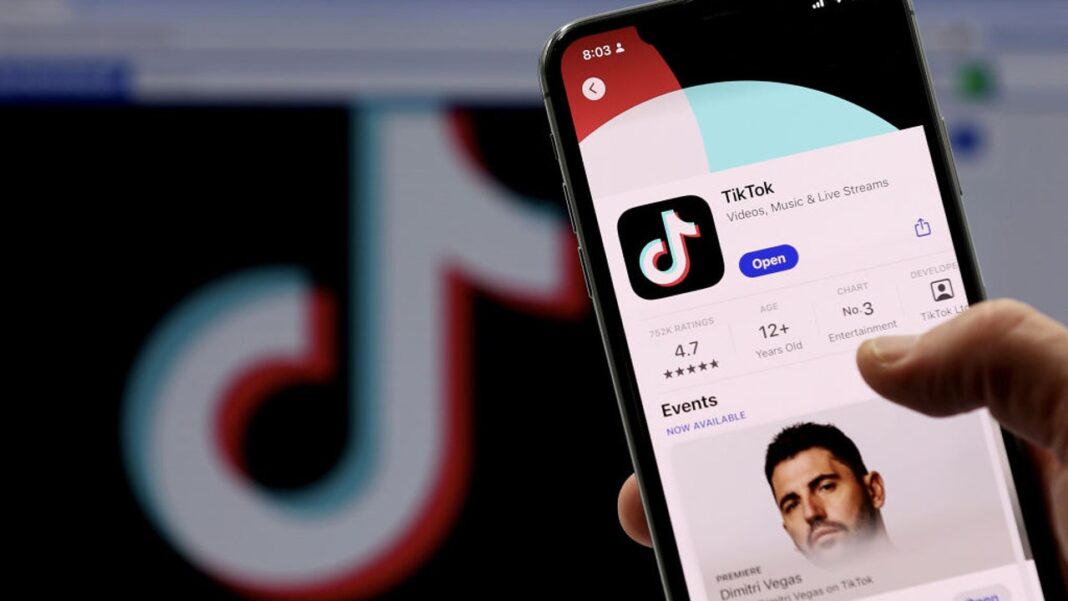## Can TikTok Help Teens Find Their Zen? TikTok, the video-sharing platform known for its viral dances and comedic skits, is taking on a new challenge: mindfulness. The app just launched a new meditation feature specifically designed for teens, a bold move in an era where screen time and mental health are constantly intertwined. But can a platform built on fleeting attention spans truly offer a space for inner peace? We dive into TikTok’s latest foray into wellbeing and explore whether this new feature is a genuine attempt to support young users or just another algorithm-driven trend.
The Impact on Teenagers
Effectiveness of Guided Meditation

While TikTok’s new feature presents a potentially positive step towards addressing teen mental health, it’s crucial to examine the scientific evidence supporting guided meditation’s effectiveness. Studies have shown that guided meditation can indeed be beneficial for teenagers struggling with sleep and anxiety. A 2019 study published in the Journal of Adolescent Health found that a mindfulness-based intervention, which included guided meditation, significantly reduced anxiety and depressive symptoms in adolescents. Similarly, a 2020 meta-analysis published in JAMA Pediatrics found that mindfulness-based interventions, including guided meditation, were effective in improving sleep quality in children and adolescents.
These findings suggest that TikTok’s guided meditation feature could offer a valuable tool for teens seeking to manage their stress and improve their sleep. However, it’s important to note that the effectiveness of guided meditation can vary depending on factors such as individual needs, the duration and frequency of practice, and the quality of the guided meditations.

Potential Drawbacks
Despite its potential benefits, there are potential drawbacks to consider. Over-reliance on technology for relaxation could lead to a decrease in the development of healthy coping mechanisms. Some teens might find the automated nature of the feature intrusive or even triggering, potentially exacerbating anxiety. It’s crucial that TikTok provides clear guidance and options for users to personalize their experience and avoid any unintended negative consequences.
Parental Concerns
The automatic activation of the meditation feature for teenagers under 18 is likely to raise concerns among parents. Some parents might worry about the app’s influence on their children’s sleep patterns and mental health. Others might prefer to have more control over their children’s technology usage and the types of content they are exposed to.
TikTok has stated that parents can manage their children’s screen time settings, including disabling the automatic meditation feature. However, it’s important for TikTok to provide clear and accessible information to parents about the feature’s functionality and potential implications. Open communication between parents and teenagers about technology usage and mental health is crucial in navigating these complex issues.
The Bigger Picture: Social Media and Mental Health
TikTok’s Role in the Conversation
TikTok’s foray into mental health tools positions the platform within a larger ongoing debate about social media’s impact on young people’s well-being. While social media platforms can offer numerous benefits, such as connecting people and fostering creativity, they also present potential risks, including cyberbullying, body image issues, and addiction.
By introducing a feature aimed at promoting sleep and relaxation, TikTok acknowledges these concerns and demonstrates a willingness to take steps to mitigate potential negative effects. This move could signal a shift in the industry towards prioritizing user well-being and addressing mental health concerns.
Comparison to Other Platforms
TikTok’s approach to mental health differs from some other social media companies that have adopted more proactive measures. For example, Instagram has introduced features that promote digital well-being, such as time limits and reminders to take breaks. Facebook, meanwhile, has partnered with mental health organizations to provide resources and support to users.
While TikTok’s new feature is a step in the right direction, it remains to be seen whether it will be sufficient to address the complex challenges posed by social media’s impact on mental health. A comprehensive approach that involves industry-wide collaboration, parental involvement, and individual responsibility is essential to create a safer and healthier online environment for young people.
Future Implications
TikTok’s integration of a guided meditation feature has the potential to set a precedent for other social media platforms. If successful, it could encourage a wider adoption of mental health tools and a greater emphasis on user well-being within the tech industry. However, it’s crucial to ensure that these tools are implemented responsibly and effectively, with careful consideration of potential drawbacks and ethical implications.
Conclusion
TikTok’s foray into mindfulness with its new meditation feature for teens is a significant step, reflecting the growing recognition of mental health concerns among young people. The platform, known for its fleeting content and entertainment focus, is now directly addressing the need for emotional well-being, potentially reaching a vast audience who might otherwise be reluctant to engage with traditional meditation practices. This move also highlights the evolving role of social media platforms, shifting from purely entertainment-driven spaces to integral parts of a holistic approach to health and wellness.
However, the effectiveness and potential impact of this feature remain to be seen. Critics argue that the short-form nature of TikTok content might not be conducive to deep, lasting meditation, and the platform’s addictive algorithms could potentially exacerbate anxiety and stress instead of alleviating them. Further research is needed to understand how this feature will be received by teens and its long-term impact on their mental health. Regardless of its outcome, TikTok’s initiative sparks a vital conversation about the responsibility of tech giants in addressing the mental health needs of their users, particularly the vulnerable youth demographic. It raises important questions about the future of social media and its potential to become a force for positive change in the lives of young people.
The question now is, will TikTok’s foray into mindfulness be a fleeting trend or a transformative step towards building a healthier digital world for teens? Only time will tell, but the conversation it has ignited is crucial and must continue.
